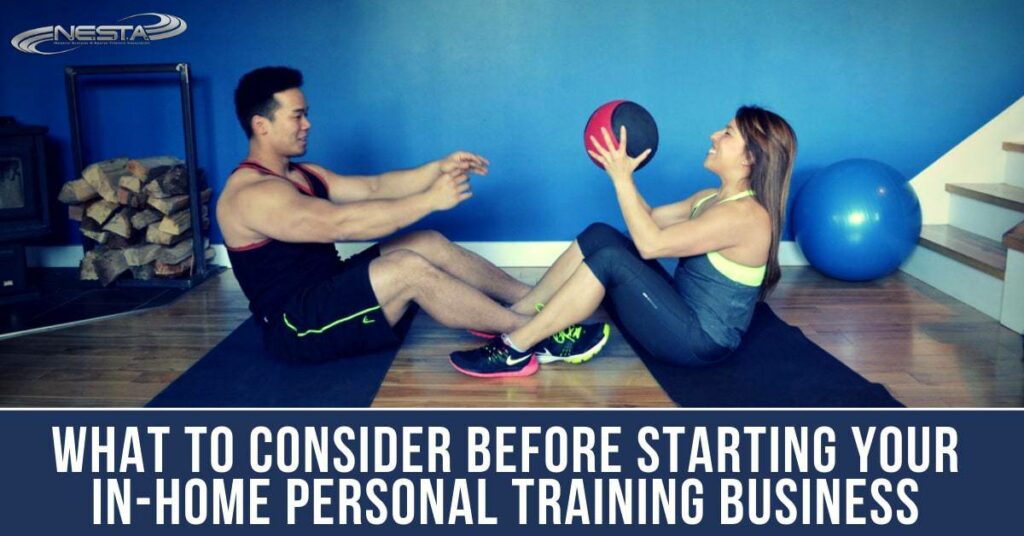What to Consider Before Starting Your In-Home Personal Training Business
In-home personal training services are becoming more popular, as they provide a convenient way to get one-on-one help with fitness experts. If you have a passion for helping others achieve their fitness goals, consider starting an in-home personal training business.
What will be your Business Structure?
Research what would benefit you the most – sole proprietorship, partnership, LLC, cooperative, S corporation, or corporation.
Are you an Employer or Contractor?
Many personal trainers working on their own or who own their own business are independent, but not always. Different classifications have different ramifications and responsibilities. Independent contractors typically are hired to perform a specific set of tasks over the course of a specified amount of time. While employees regularly and continually work for their employer and their employer is generally responsible for paying taxes.
Have you Drafted Contracts?
Always keep your business, business. Never cut corners when it comes to creating contracts for your business. An attorney can help draft or review contract language to ensure that it is legal and binding. Your contract needs to include an offer and acceptance based on mutually agreed upon terms (a.k.a what service is being provided). Keep in mind that all parties entering into a contract need to be of sound mind and legal age, and your contracts have “legality,” meaning they have been drafted in an acceptable form according to the law.
What are your Client Policies?
Give thought to what your policies will be for cancellations, rescheduling, failed payments, and termination of the agreement. This language can be included in your contract.
Have you Selected your Forms?
All professionals and facilities should have in place documents including:
- Agreements to Participate
- Liability Waivers
- Informed Consents that include Assumption of Risk and the Inherent Risks to Exercise
What Business Insurance will you Need to Purchase?
This is an absolute necessity. Research what type would benefit your home training business and gym.
Are you Prepared to Prevent Negligence?
There are different levels of negligence including vicarious, gross, contributory, and comparative. Depending on the business structure, worker classification and if you supervise employees, negligence may be viewed differently in a court of law. For example, employers are responsible for their employees and their actions and could be held liable in certain situations. As a trainer, if you are reckless, you could be sued for gross negligence. Understanding this legalese will provide protection for you and your clients.
Learn more about starting your Personal Training or Coaching Business here








